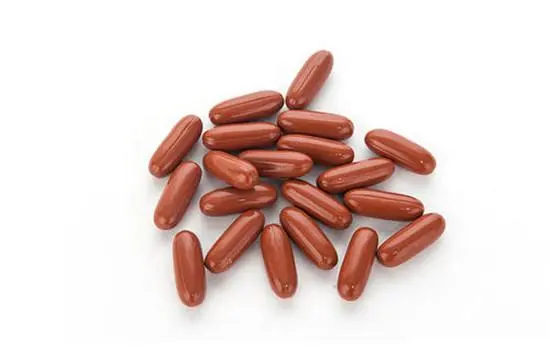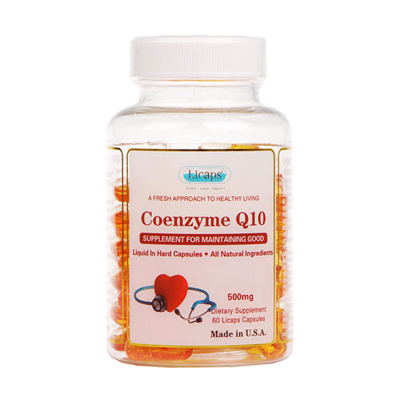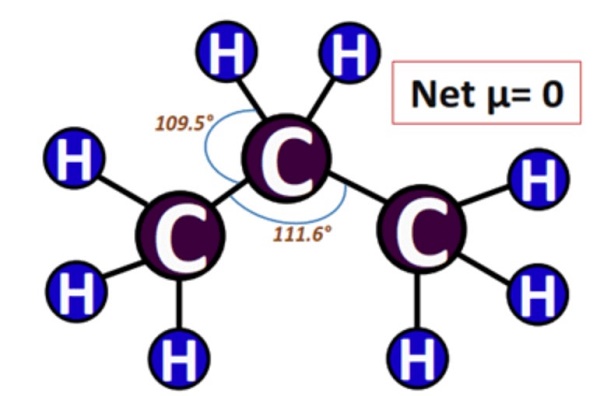What are the benefits of Coenzyme Q10?
Desceptrion of Coenzyme Q10
Coenzyme Q10 is also known as coenzyme Q, coenzyme Q, coenzyme Q10, ubiquinone, ubiquinone-Q10, ubiquinone or vitamin Q10. It is one of the most important lipid antioxidants. The main biochemical role of coenzyme Q10 is to act as a cofactor in the electron transport chain and to participate in a series of redox reactions in the synthesis of adenosine triphosphate. The body produces less Coenzyme Q10 as we age, but it can be obtained from supplements or food.

Benefits of Coenzyme Q10
Coenzyme Q10 may help protect the skin, brain, and lungs, and prevent chronic diseases such as cancer or diabetes. Low levels of coenzyme Q10 may be associated with conditions such as cancer, diabetes and neurodegenerative diseases.
It may help treat heart failure
Some research suggests that CoQ10 could improve treatment outcomes for people with heart failure. One analysis of seven reviews concluded that CoQ10 could be beneficial for managing heart failure, especially for those unable to tolerate other treatment methods. Another review of 14 studies found that people with heart failure who took CoQ10 supplements had a decreased risk of dying and a greater improvement in exercise capacity compared to those who took a placebo. CoQ10 could also assist with restoring optimal levels of energy production, reducing oxidative damage, and improving heart function, all of which can aid the treatment of heart failure.
It could help with fertility
Female fertility decreases with age due to a decline in the number and quality of available eggs. CoQ10 is directly involved in this process. As you age, CoQ10 production slows, making the body less effective at protecting the eggs from oxidative damage. Supplementing with CoQ10 seems to help and may even reverse this age-related decline in egg quality and quantity. Several studies have concluded that supplementing with CoQ10 may improve sperm quality, activity, and concentration by increasing antioxidant protection.
It might help support healthy skin aging
According to human and animal studies, applying CoQ10 directly to the skin may help reduce oxidative damage caused by UV rays and help decrease the depth of wrinkles and promoteantioxidant protection.
It could reduce headaches
Since CoQ10 lives mainly in the mitochondria of the cells, it has been shown it may be beneficial for the treatment of migraine. One review of five studies found that CoQ10 may effectively reduce the duration and frequency of migraine in children and adults. Another 2017 study showed that CoQ10 might help reduce the frequency of headaches and make them shorter and less severe.
It could help with exercise performance
CoQ10 may help exercise performance by decreasing oxidative stress in the cells and improving mitochondrial function. One study found that CoQ10 supplementation may have helped inhibit oxidative stress and markers of muscle and liver damage in adolescent elite swimmers during their competition phase. Moreover, supplementing with CoQ10 may help reduce fatigue, which could also potentially improve exercise performance.
It may help with diabetes
Oxidative stress can induce cell damage. This can result in metabolic diseases like diabetes, as well as insulin resistance. In a 2018 meta-analysis, CoQ10 has been suggested to improve insulin sensitivity and regulate blood sugar levels. Another study in people with diabetic neuropathy — a type of nerve damage that can occur in people with diabetes — found that taking 100 mg of CoQ10 daily for 12 weeks may have improved HbA1c levels and insulin resistance.
It might play a role in cancer prevention
According to some test-tube studies, CoQ10 could block the growth of cancer cells. Interestingly, people with cancer have been shown to have lower levels of CoQ10. Some older studies suggest low levels of CoQ10 may be associated with a higher risk of certain types of cancer, including breast and prostate cancer. Newer studies have also suggested this with regard to lung cancer. Nonetheless, the National Institutes of Health (NIH) Trusted Sources states that CoQ10 has not yet been shown to have therapeutic value in the treatment of cancer, so more research is needed before a definitive conclusion can be made.
You may like
Related articles And Qustion
See also
Lastest Price from Coenzyme Q10 manufacturers

US $200.00/kg2025-12-16
- CAS:
- 303-98-0
- Min. Order:
- 1kg
- Purity:
- 99%
- Supply Ability:
- 20tons

US $0.00-0.00/KG2025-12-02
- CAS:
- 303-98-0
- Min. Order:
- 1KG
- Purity:
- 98
- Supply Ability:
- 10000KGS





